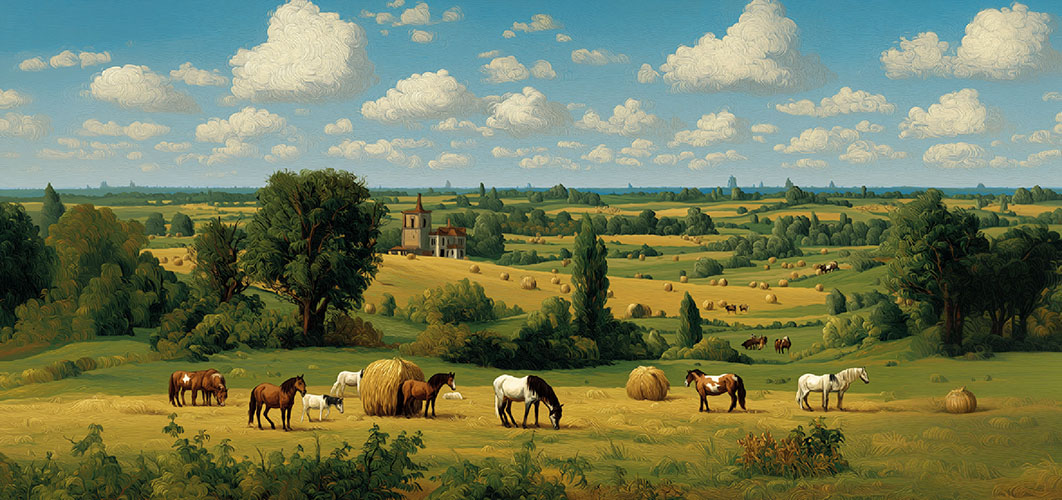Sheaf
Word of the Day: sheaf. This is a bundle of grain stalks tied together with the grain heads all facing the same direction.
As always, it's difficult to learn terminology from an industry you're not immersed in when studying a foreign language. What's especially challenging are things you learn as a child and then vaguely remember your whole life but rarely use in daily conversation—like the names of little birds or animals from fairy tales.
Everything that was once widely used in daily life, because almost everyone lived in villages and was closely connected to growing food, has left its mark. Many words are tied to this, and they later get used as allegories, metaphors, and so on. For us modern-day people, the clearest example is the 3.5-inch floppy disk icon in computer interfaces for the save function. But you encounter this phenomenon everywhere.
Animal-related vocabulary is especially difficult for me, with each one connected to dozens of words. Take horses, for example. First, there are different types: mare, stallion, gelding, bronco, mustang, colt, filly. But we also know words like mane, horseshoe, tack, withers, fetlock, pastern, pommel, cantle, martingale, and hackamore. And that's not even everything. A group of horses is a herd. When multiple horses are hitched together, it's a team or span. In the saddle sits a rider, but there are also farriers, ostlers, wranglers, drovers, and bereiters. Horses have stalls and paddocks. Horse colors (coats) also have specialized terms: piebald, skewbald, palomino, dapple-gray, or chestnut. The sounds horses make include nickering, whinnying, and snorting, yet in fairy tales horses say. "neigh-neigh." There are specific words for how horses move: at a hand gallop, collected trot, or extended canter. And there's specialized terminology for horse meat dishes that some people know from Western novels or specialty restaurants—like horse steaks or smoked horse sausage—plus loads of specialized words for leather work like cordovan and horsehide. I'm ashamed to say I only know these superficially now. And then there are cavalcades, Clydesdales, Percherons, and terms like dressage, which I think relate to horses, but I'm not confident about their exact definitions. (I'll go read up on them now)
So many words! Where does a modern person learn them nowadays? It's unclear. But somehow we know them. And a similar spectrum of words exists for every animal. And generally for other agricultural and non-agricultural sectors too. For example, there's a haystack, a haycock, and a sheaf. Why, nowadays not everyone can confidently explain how hay differs from straw, let alone silage. And in English, due to how the language itself is structured, there are incomparably more such words than in virtually any other language, in fact several times more.
I was reading about new Linux functionality where they're adding optimized memory management, dividing RAM into what they now call "sheaves." This got me thinking about words like bale, haycock, haystack, and parcel, and took me on this journey, and now it looks like you too.



